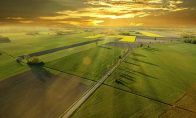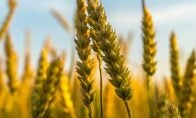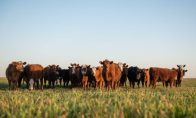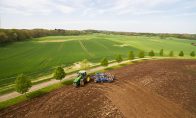Katie AndersonSenior Director, Food and Forests, Raleigh, NC
Area of Expertise: Deforestation, Agriculture, Supply Chain, Sustainable Food.
As Senior Director, Katie works to catalyze the food and agriculture industry to set ambitious climate goals and implement strategies for improving environmental outcomes at scale. Katie has nearly a decade of experience advising companies like Walmart, Danone and Tyson on how to reduce the climate impacts of their global supply chains, with a particular focus on reducing methane and nitrous oxide emissions, and stopping tropical deforestation. Katie has a Masters of Environmental Management degree from Duke University’s Nicholas School of the Environment.

Posts by this author

Why food companies must act now to protect public funding for climate-smart agriculture
Food companies can use their voice to safeguard essential Farm Bill funding to mitigate agricultural emissions and protect food supply chains.

Strategic Roadmaps for SBTi Forest, Land, & Agriculture Targets
Actionable guidance to more strategically advance ambitious climate targets aligned with the Science Based Targets initiative’s (SBTi) guidance.

Climate Action Explained: A Must-Have Guide to Reducing Food Emissions
Pathways for six key commodities aligned with SBTi FLAG guidance for food companies to more strategically work toward climate targets.

Dairy Methane Action Alliance: What’s Coming in 2024
Bel Group, Danone, General Mills, Kraft Heinz, Lactalis USA, and Nestlé join Environmental Defense Fund's Dairy Methane Action Alliance.

Looking Ahead to COP: Climate Week Takeaways for Food & Agriculture
Road to COP28: take these 6 steps to establish your food and agriculture company as a climate-smart industry leader.

Calling all food and ag companies: it’s time to reap the benefits of the Inflation Reduction Act for climate-smart agriculture.
Advancing climate-smart farming practices is critical to bringing emissions down and meeting corporate and U.S.-wide climate goals.
1
2
3
4